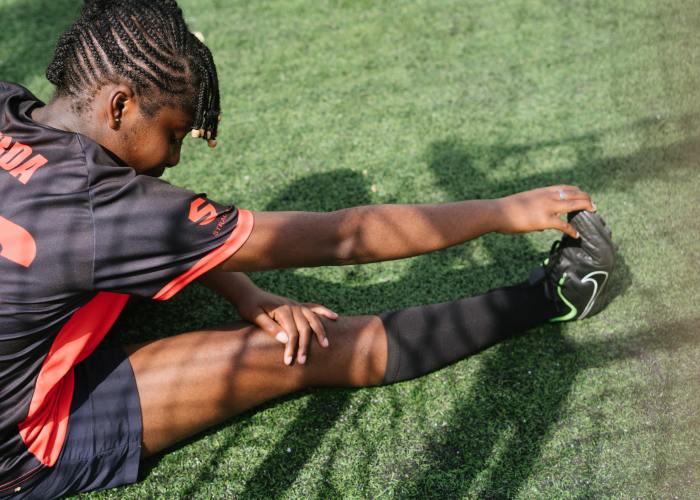Youth sports are competitive, and to stand out means you have to put in work outside of the regular training activities of your team. For the best players, offseason is a critical time for recovery, rest, mental preparation, and strength training. The key to succeeding in offseason is balancing your routine while avoiding burnout.
To put in extra time outside of your regular season requires passion, focus, endurance, and patience. Becoming the best is not just about putting in more time but about doing so in a smart way. Offseason can be a fantastic opportunity to round out the weak spots in your game and focus on perfecting your strengths.
“Success is no accident. It is hard work, perseverance, learning, studying, sacrifice and most of all, love of what you are doing or learning to do.”
Pelé

Offseason Practice Makes Perfect
Offseason can have a significant impact on your performance through regular season. Spending time refining your skills during these months shows your commitment and work ethic behind the scenes. The impact may not be immediate, but as you continue to put in the work, the results will begin to show. Spend time on the field, as well as well as analyzing your game off the field through game film review. Athletes often use Trace iD, for instance, to keep track of areas for improvement through the regular season. In offseason, players can easily return to their Trace iD to identify areas of focus for training.
It’s important to note that small breaks are also necessary to perform at your best. Not only will a short break refresh your body, but it will also allow you to focus more. Rest days, vacations, and breaks from workout routines and intense activity will work wonders.
Focus on Mental Skills
Preparing for a competition can be complex at times. Gearing yourself up mentally is critical so that any athlete can build confidence, manage stress, and increase focus. Yes, it’s vital to lay the necessary physical groundwork before a competition, but many sports psychologists have acknowledged the mental side in recent years, revealing that this component is arguably more important to performance.
Many experts now suggest practicing mental exercises to push both internal and external barriers, which can include:
- Reflection on the past season: what you did well and what you can improve upon.
- Setting attainable goals: Outline a plan for the next 2-3 months with steps to act on.
- Building new mental skills, such as mindfulness: the more aware and present you are, the better you will be during the season.
Among others, these exercises can aid with focus, confidence, and distraction limitation so your attention remains on your performance. Retaining and improving your ability to stay locked in is one of the most underrated skills in top athletes, and oftentimes sets them apart from the rest. Here are a few ways to strengthen your mental approach moving forward.
https://www.youtube.com/watch?v=7Sp-0jfKvqw
Self-Belief
Having confidence in oneself is the ability to believe in their skill and performance with the goal in mind to complete an objective. Training at a high level while others take time off will improve your chance to be the best on the field, which likely translates to winning more games with your team. Being the best player won’t always ensure you’ll come home with the win, but it will give you a better chance. Use the offseason to develop good internal and external habits so that no matter what happens on the field, belief in your ability remains intact at all times.

Strength Training
Athletes push themselves to their physical limits, and they often use specific body parts much more frequently than others. Baseball players, for instance, might overuse their arm for throwing or pitching, which means using the offseason to use physical training to balance things out and build supporting muscles.
Speed, strength, mobility, and endurance are just a few of the physical components that are universal for all sports, and these are all things that you can improve on your own outside of the regular season.

Offseason training is critical for avoiding injuries. The British Journal of Sports Medicine reports that “strength and conditioning training reduces sports injuries to less than one third and overuse injuries decreased by almost 50%.” Working out the muscles around joints is very important, as those specific areas can take much longer to recover from when injured. With a wide range of exercises available to any athlete, make sure that you hone in on specific muscle and joint groups specific to your sport.
Active Rest
“Active rest” means striking a balance between recovery and maintaining fitness levels. Some people hear "rest" and think that sitting on the couch playing video games is the way to achieve this goal of resting. That's a recipe for disaster and will only lead to decreases in your fitness and agility levels.
Active rest could mean playing sports, going for non-strenuous hikes, or other activities that keep you on your feet without too much strain that could lead to physical exhaustion.
[xyz-ips snippet="Academy-CTA"]




